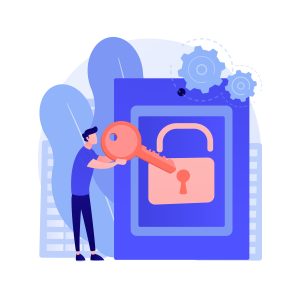In today’s digital age, protecting our online presence has become paramount. With data breaches and identity theft incidents on the rise, it’s imperative to fortify our defenses. One effective way to do this is through the use of password manager.
Why Knowing Fewer Passwords with a Password Manager Is Safer
Password management is crucial in an era where malicious software can record keystrokes and our brains can only memorize so many combinations of letters, numbers, and symbols. By relying on a password manager, you can significantly reduce the number of passwords you need to remember. This means you don’t have to type in your password manually every time you log in.
The Vulnerability of Common Passwords
Many people use easily guessable passwords like “Password1234,” which is a security nightmare. Hackers often employ dictionaries containing commonly used usernames and passwords to break into accounts. One solution to this issue is to generate unique and complex passwords that no dictionary can contain.
Embracing the Password Manager
This is where password manager apps come into play. They create strong, unique passwords for each of your accounts and store them securely, encrypted until they’re needed. The idea is simple: you should know your password manager’s password, and that’s it. Your password manager becomes your key to unlocking all your accounts, from social media to online banking.
Creating Unbreakable Passwords
However, even your password manager’s password should be exceptionally strong. Avoid using easily discoverable personal information and incorporate a mix of upper- and lowercase letters, numbers, and special characters. Remember, the longer the password, the harder it is to crack. Alternatively, you can use a series of words that are easy to remember but difficult for others to guess.
Multi-Factor Authentication: A Must-Have
If you decide not to use a password manager or to further enhance your security, enabling multi-factor authentication (MFA) is highly recommended. MFA adds an extra layer of security to your accounts, making it more challenging for hackers to gain access. Even if they crack your password, they won’t have your smartphone or another device necessary to complete the sign-in process.
Balancing Security and Convenience
While it’s essential to remain vigilant about online security, the reality is that we can’t rely solely on our ability to create and manage passwords. Trusted password manager apps not only bolster our security but also provide unmatched convenience. As one user aptly put it, “I’d rather have my password manager punch in my password for me.”
In conclusion, the digital landscape is fraught with security challenges, but with the help of password managers and multi-factor authentication, you can significantly reduce your vulnerability to cyber threats. These tools empower you to protect your online accounts effectively while ensuring your convenience. So, why struggle to remember countless passwords when a reliable password manager can do it for you, safely and securely?
